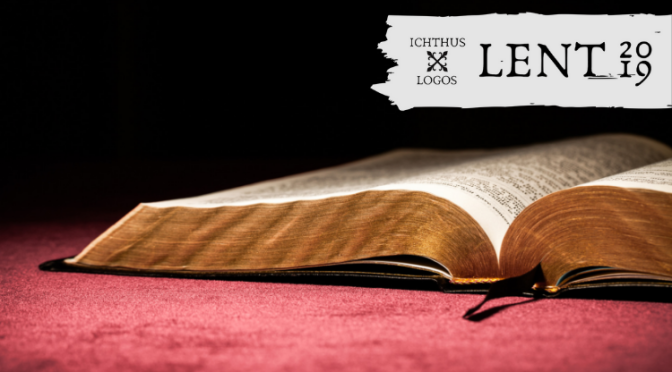God’s Suffering
Nov. 8th, 2020 | Se Ri Lee MC ‘23+1
“Yet it was the Lord’s will to crush him and cause him to suffer.”
~Isaiah 53:10
In my previous encounters with this verse from Isaiah 53, my thoughts had always dwelled on the word “suffer,” then shifted to pondering God’s inexplicable reason for allowing suffering a place in the world. This time, as I read over it, my eyes rested on the “him.” It suddenly occurred to me that God put Himself through suffering. It was God’s will for His Son Jesus (i.e. God Himself [1]) to suffer perhaps the greatest suffering of all time: death through torture, crucifixion on the cross.
I started looking at various translations of this verse and stumbled upon a rather unsettling one, which turned out to be closest to the original Hebrew. “Yet it pleased the Lord to bruise Him.” The verb “pleased” seemed off-putting. Surely God didn’t really mean it? How can one possibly be pleased by hurt and pain? The eeriness of this translation made my thoughts dwell on this verse further. I started reading some commentaries, one of which explained, “In and of itself, the suffering of the Son did not please the Father. But as it accomplished the work of reconciling the world to Himself, it was completely pleasing to God the Father.” [2] This explained the source of God’s pleasure: it was not from pain of torture, but from the joy He received by the prospect of reuniting with His people.
My mind was soon bombarded with a series of other questions. Is God willing to sacrifice one man for the greater good? I was reminded of the trolley problem: was what God did ethical? And why did God put up with all this? He needn’t suffer if He didn’t allow sin to enter the world in the first place. After all, He is an omnipotent God, isn’t He?
In an attempt to tackle the enigma of why God made room for sin, I turned to Genesis 3 – the story of how sin entered the world. In the previous chapter, God made the Garden of Eden and placed within it Adam, the first homo sapiens. He provided Adam with all kinds of trees for food, but interestingly, He also placed one tree that He told Adam not to eat from: the tree of the knowledge of good and evil. At this point, it seemed only obvious that Adam would eventually eat from this tree and break God’s commandment. Indeed, Adam soon turned against God, as Genesis 3 delineates. He ate from the tree.
If God didn’t make this tree of knowledge in the first place, Adam couldn’t have sinned. Satan couldn’t have tempted Eve. Then why did God create such a tree? Why did He deliberately introduce a problem to which the only remedy was His own tortured death on the cross?
I was surprised how instantly the answer came to me: it was because God wanted Adam to have free will, as He Himself had free will, because it pleased God to “[create] mankind in His own image” (Genesis 1:27). God was pleased with His creation and with how He had made them (Genesis 1:31).
God’s own suffering on the cross and the fact that it pleased Him made all the more sense. God, being omniscient, knew Adam would sin when He made the tree of knowledge and was even well aware of the pain He would have to endure from His broken relationship with humanity and later on the cross. Yet He still made the tree, allowing man and woman to reign over their choices, because He wanted to gift humanity with powers of His own. He saw humans as His own children, not as pawns or servants or pieces of artwork.
That is, God could suffer and still be pleased because He loved us. This realization easily dismissed the question I had of whether it was ethical of God to tolerate the suffering of one man for the benefit of the multitude. The question was simply mistaken at the core. It was like questioning whether it was right for a lion to be pleased by the bruises that saved his cubs from the hyena. It would be absurd to debate the ethics of the aforementioned scenario because it wasn’t a matter of ethics; it was a matter of love, a fatherly instinct.
The skeptic inside me argued that this analogy was misleading: that the story should be that the lion sacrificed one of his cubs, not himself, to save the rest. At this, I had to remind myself of the oneness of God and Jesus – that when Jesus suffered, God suffered with Him – and silenced further debate with my inner skeptic because the mystery of the Holy Trinity, though unsatisfying, was one I had decided to accept without question. The Father and Son, as one being, suffered and was pleased to redeem His children.
I could finally come to terms with this perplexing verse from Isaiah 53. God loved humanity so much that He was eager to share His traits and powers with His children. He shared Himself with us even if that meant going through pain and torment. Overjoyed by this revelation, I wondered if this might answer the question that had bothered me so much on the previous occasions I had read this verse: why did God let suffering become so pervasive in today’s world? Although it didn’t – the question was just as unanswerable as before – the fact that I couldn’t find the reason behind my sufferings didn’t bother me at all.
My realization of God’s love made all my past and present sufferings feel so bearable compared to what God had to go through. It made me forget ever wanting to cry, give up, and lose hope. God’s love for me was just too great. It lit up my soul like a blinding flashlight, driving out all darkness. So powerful that nothing could ever beat it.
[1] God is Jesus, and Jesus is God. They are one entity albeit their distinct roles: God as Father and Jesus as Son. Along with the Holy Spirit, they make up the Holy Trinity, which is one God.
[2] Guzik, D. "Study Guide for Isaiah 53 by David Guzik." Blue Letter Bible. Last Modified 21 Feb, 2017. https://www.blueletterbible.org/Comm/guzik_david/StudyGuide2017-Isa/Isa-53.cfm


